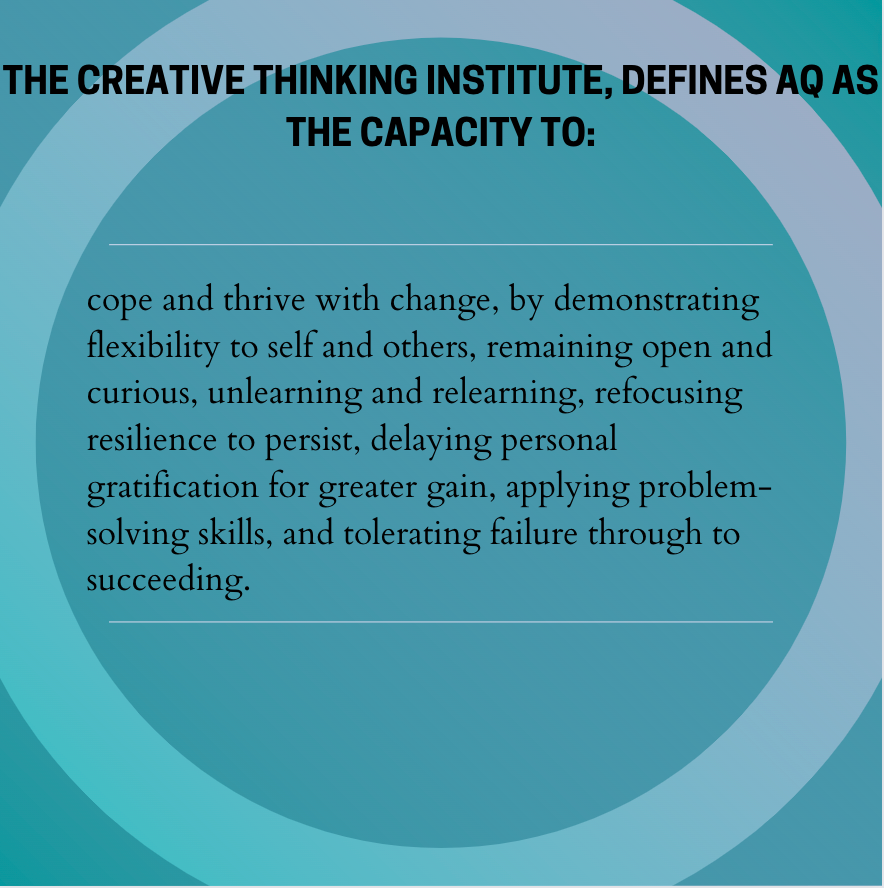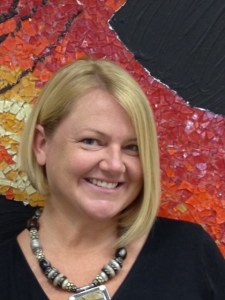When I was in elementary school, I was tested to see if my IQ was high enough to be considered for the Gifted Program. I think I was singled out as a potential genius more for my EQ than for my IQ. I wasn’t super smart or anything, but I knew how to figure things out, how to read people, and how to please teachers.
This has remained true throughout my personal and professional life. I’m never the smartest person in the room, but my EQ reminds me that I’m okay with that. I appreciate learning from and with others. I love to laugh while working hard. I care about others and am curious about their superpowers.
In COVID times, a different type of quotient has emerged from the EQ bucket and has begun to grow legs, the Adaptability Quotient (AQ).
Our world has become more complex, more uncertain, and more ambiguous. Each day it seems we are navigating relationships and responding to situations that feel different than ever before.
According to Amy Edmondson, a professor of leadership and management at Harvard Business School, your IQ might help you get through exams to become qualified in your chosen field of work; your EQ might help you connect with your interviewer, get the job, and build relationships with coworkers and clients; but it’s your AQ that will ensure you can keep up with innovations and new ways to work in an everchanging future.

I believe these are skills that can be honed and grown, no matter your age or stage. In fact, the 6Cs from New Pedagogies for Deep Learning use progressions that help users better understand where they are in those specific competencies and what it looks like as they keep growing their AQ.
Below, I have included just a few of the competencies where I see what having a high Adaptability Quotient (AQ) looks like.

What can we do?
As educators, we need to help students not only build their AQ muscles, but we need to be explicit about what it looks like when they are being adaptable, when they aren’t showing the skills of being adaptable, and why this will help them throughout life.
Of course, we first have to start with ourselves. Take a look at the competencies above. Which of these do you feel confident in? Which do you see room for growth? How might you consider a goal to work towards? Who could join you as an accountability partner? Maybe a class?
Self-Awareness and Self-Reflection
Under the Communication competency, I am committed to checking for personal bias. I know that this is an area of growth for me. In fact, in a recent meeting, I recognized that my own biases might be interfering with my ability to make a specific decision and asked for a barometer check to ensure that my decision-making was fair and accurate.
Hey! Will you look at that?!
I used my IQ to remind me that I might be wrong. I used my EQ to humbly recognize that my thinking might be biased. I used my AQ to remain open and curious about other perspectives.
Maybe I AM Gifted after all!


This was a really good article! I don’t have the IQ to compose a witty comment and I guess I’m using my EQ to recognize that! I don’t know how to put AQ in a cute little sentence…lol! I love seeing how much you love what you do when you write these articles!Dawn
LikeLike
Seeing all of your Qs in action gave me a giggle. So, well done, my witty friend!
LikeLike